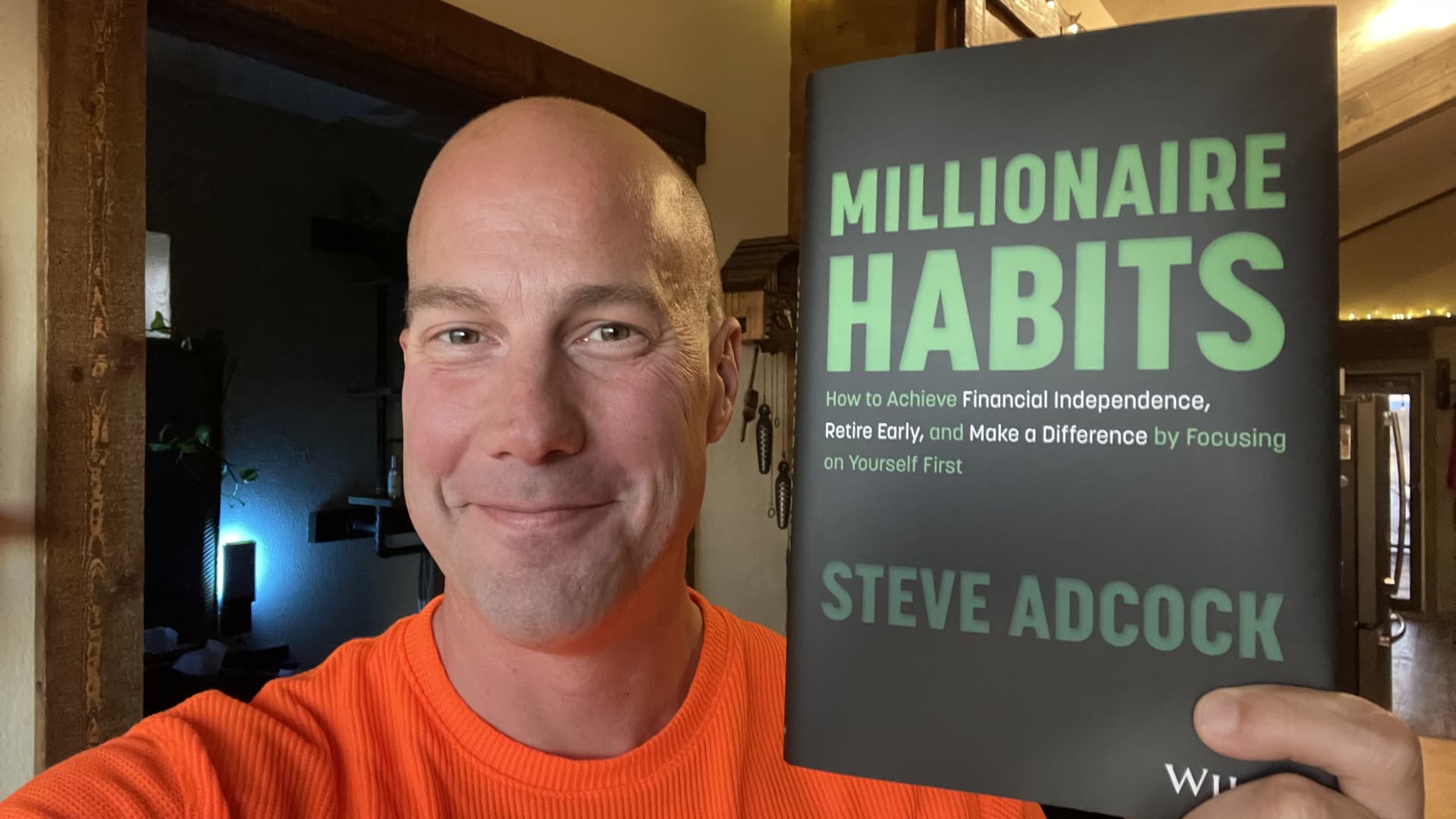You’d be hard-pressed to find someone who doesn’t have a single financial regret. Even millionaires and early retirees likely had a few stumbles on the road to financial freedom.
Take Steve Adcock. The 42-year-old retired from his corporate job in 2016 with about $900,000, a total that market gains soon pushed over $1 million. These days he pegs his net worth at about $1.3 million and lives with his wife in a home he purchased for cash in Arizona.
The couple don’t currently draw from their ample savings, instead electing to let their investments continue to grow while they pursue passion projects to bring in the money they live on.
But even after seven years of blissful semi-retirement, the author of “Millionaire Habits” says he wishes he’d done things a little differently early on.
“The one thing I really wish I did more of was saving, and especially investing more aggressively,” he says. “It’s exponential growth. The longer you invest, the more money you’ll have at retirement. Period.”
‘At least I was doing that’
Adcock recalls his early 20s as a time where he was doing the “bare minimum” financially.
“I was saving 10%, which is the commonly recommended saving/investing percentage of your income,” he says. “So at least I was doing that.”
For many would-be savers, what Adcock describes as the minimum is a very reasonable starting point — especially given how he invested his savings.
“I was at a company that offered a 401(k) and also had a Roth IRA, and contributed a portion to each,” he says. “Thanks to [advice from] my dad, I contributed enough to get the match in my 401(k) — that was literally free money.”
If you hear a faint rumbling in the distance, that’s the sound of a legion of financial planners nodding in approval. By contributing enough in his 401(k) to receive a full match, Adcock was theoretically earning a 100% return on his money. And by investing some of his savings in a Roth IRA, he set himself up to be able to make tax-free withdrawals in retirement.
For many young investors, Adcock’s set-up would be considered a great start. The key, financial experts say, is to find a savings rate that you’re initially comfortable with and gradually up it over time until it it’s in line with your financial goals.
‘We wanted to achieve early retirement as quickly as possible’
Adcock would eventually do just that — he just wishes he saved a little more money earlier on.
“My problem was, I was used to living like a college student — not spending on anything and not really getting to enjoy anything,” he says. “So when I finally got a job it’s like, ‘Yes, I’ve got all this money coming in. The last thing I want to do is save and invest it.'”
Adcock, at least initially, had fallen into a trap that financial experts call “lifestyle creep” — a state in which your spending rises along with your salary.
By 2014, the year Adcock married his wife, the couple were making a combined $220,000 — the equivalent of about $290,000 in 2024 dollars. Hoping to accelerate their savings and kickstart a journey toward early retirement, the couple put themselves on a strict budget and funneled 70% of everything they made into 401(k)s, IRAs and taxable brokerage accounts.
“We would take our budget, we would look at our necessary expenses, like our mortgage, our cell phones and food, things that you just have to spend money on, and we would invest the vast majority of the rest, because we wanted to achieve early retirement as quickly as possible,” Adcock says.
“If we were on a 10-year plan, maybe we wouldn’t have been so strict. But I hated what I did. I wanted out, like, today. So that was the motivation.”
Want to make extra money outside of your day job? Sign up for CNBC’s new online course How to Earn Passive Income Online to learn about common passive income streams, tips to get started and real-life success stories. Register today and save 50% with discount code EARLYBIRD.
Plus, sign up for CNBC Make It’s newsletter to get tips and tricks for success at work, with money and in life.
Read the full article here





